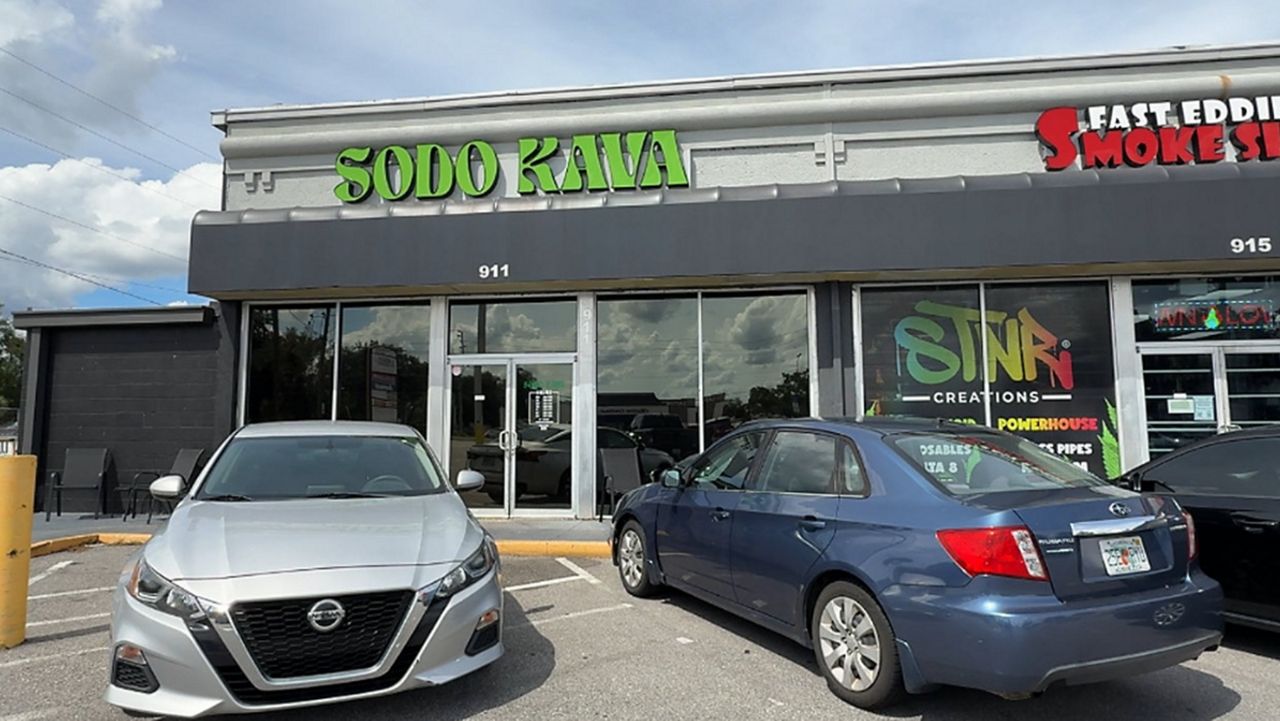ORLANDO, Fla. — Florida Attorney General James Uthmeier in August issued an emergency rule that makes it illegal to sell, possess or distribute any isolated or concentrated form of one of the most powerful compounds found in kratom, a popular herbal supplement that’s often brewed into tea or mixed drinks.
What You Need To Know
Florida classifies 7-hydroxymitragynine, or 7-OH, as a Schedule I controlled substance
The compound is found in kratom, a plant-based supplement often made into tea
Kaitlin Wright, co-owner of SODO Kava in Longwood, says it serves only natural kratom strains, not 7-OH extracts
Toxicologist Dr. Josef Thundiyil says nearly 40 deaths in Florida have been linked to kratom use
The compound, called 7-hydroxymitragynine, or 7-OH, has officially been classified as a Schedule I controlled substance, putting it in the same category as heroin, LSD and fentanyl. State officials said the extract is far more potent than regular kratom and has been linked to addiction and even death.
Even with the change, regular kratom tea is still legal in Florida, and it’s on the menu at SODO Kava in Seminole County. The lounge was built to give people a sober place to socialize.
“I think it’s super important to provide a sober space somewhere that people can connect and hang out without alcohol being present,” said Kaitlin Wright, co-owner of SODO Kava.
The shop offers white, green and red kratom teas, each known for different effects ranging from energy to relaxation. Wright said the focus at SODO Kava is on keeping things natural and safe.
“For us, we’ve never sold 7-OH. It is an alkaloid in kratom that producers will create extracts from…” she said. “That’s not something that we deal with at all. We prefer the tea in its most natural forms.”
While customers at lounges like SODO Kava see kratom as a plant-based alternative to alcohol, toxicologists say the more concentrated forms can act like opioids in the brain.
“Do not assume that it’s safe. Realize that it has the potential for addiction,” said Dr. Josef Thundiyil, an emergency medicine physician and toxicologist with Orlando Health at Orlando Regional Medical Center. “And in some people, very compulsive addiction. Know that people have died from kratom use.”
Some Central Florida smoke shop owners who used to sell 7-OH said they stopped after seeing customers change dramatically. Some regulars started to “look like zombies,” one shop owner said.
By classifying 7-OH as a Schedule I substance, law enforcement can now treat it like other dangerous narcotics.
Thundiyil said his team is continuing to study kratom’s broader impact and hopes more research will help the public understand where the real risks lie.
“We still don’t know exactly what dose is safe or unsafe,” he said. “It’s a substance people need to be cautious with.”
For Wright, the goal at SODO Kava remains the same — creating a relaxed, alcohol-free space that’s focused on connection, not intoxication.
“People want to unwind and feel good,” she said. “We just want to give them a healthier way to do that.”

